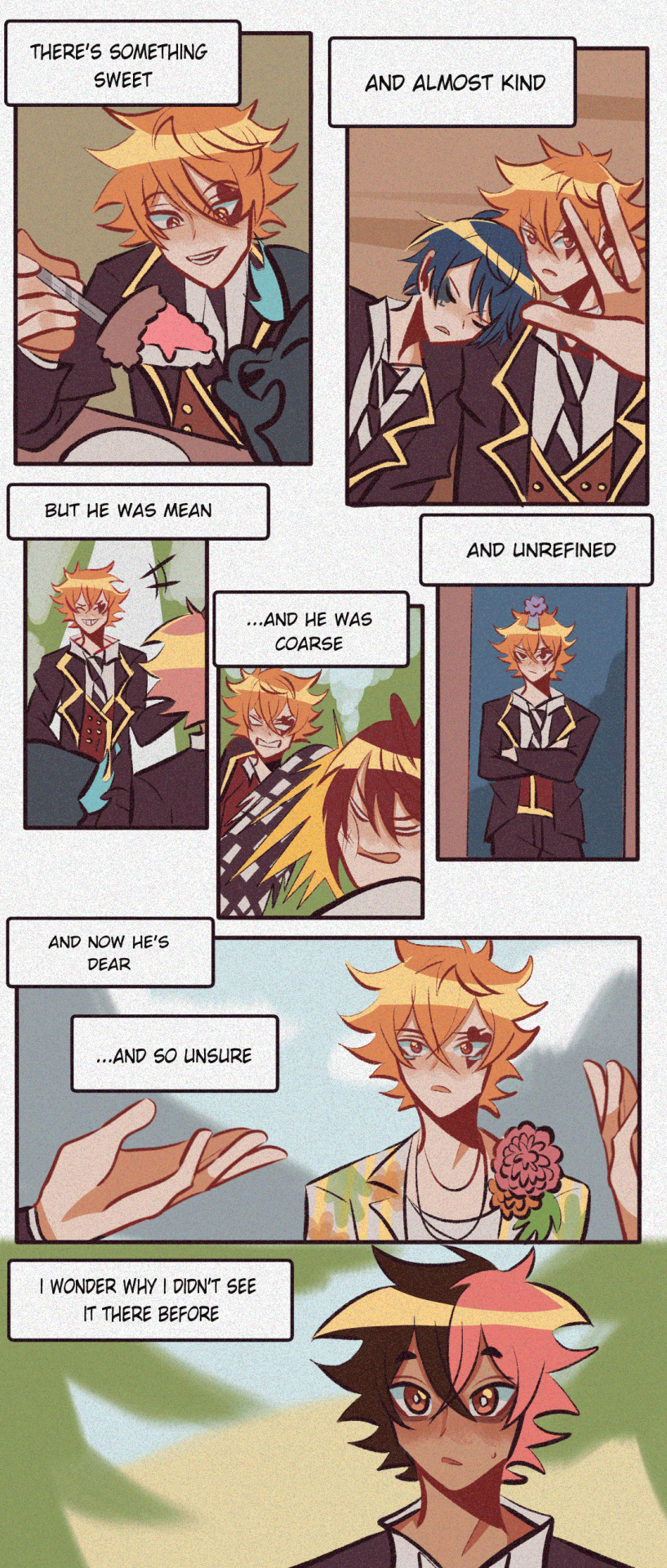Just a girl who enjoys TWST, PRSK, Sonic, PKSP, and Kekkai SensenIcon made by @kadiricchi99
Last active 4 hours ago
Don't wanna be here? Send us removal request.
Text
BREAKING: Ace Trappola LOVES his friends SO MUCH

312 notes
·
View notes
Text

Caved and drew fanart just for views smh
Late night ramen with Adeuce and Grim featuring my Twst oc, Yuna
171 notes
·
View notes
Text

The company budsies, which specializes in making custom stuffed animals and making duplicates of old or lost plushies, is currently offering to recreate the beloved stuffed animal of any kid who lost theirs in the LA wildfire, free of charge.
Their instagram post said to share this, so please spread this around so that families who've lost everything can receive just a little bit more hope in their lives 🥺
28K notes
·
View notes
Text


Their hug makes me so teary eyed every single time (I’m lying it makes me sob) I love found family’s more than anything
1K notes
·
View notes
Text



heartshackle.......
289 notes
·
View notes
Text

Let's change the topic...
329 notes
·
View notes
Text
Im so emotional over the fact that Yuu doesn’t even exist in all the other student’s dreams but Ace’s dream is centered around them. Ace cares so much about his friends what if I sobbed. Ace i know what you are.
193 notes
·
View notes
Text

adeucegrim trio + prefect
280 notes
·
View notes
Text
If you’re the actor then who am I?

83 notes
·
View notes
Text

sinbad sirens but they appear as the person you desire
5K notes
·
View notes
Text

ace you can't just ask something like that
947 notes
·
View notes
Text
Since Sonic was always usually following Tom around before they met, do you think he looked out for Tom too? Tom’s on a ladder cleaning out one of his neighbor’s gutters, reaches too far, feels the ladder wobble and tip back. He’s about to fall, he knows he’s about to fall, making a desperate grab for the roof and missing, and then suddenly he’s not. The ladder is fine. Leaning against the house like nothing happened. Tom’s heart is still racing, but he chalks it up to luck. Maybe he did reach the roof. Maybe he blinked and missed it. He doesn’t know about his little blue supersonic guardian angel watching from the tree line.
#sonic wachowski#tom wachowski#tom is sonic’s favorite person in the world and has no idea for years#<<<< I needed to include op’s tags
16 notes
·
View notes
Text


i felt my heart shatter a million pieces when i saw him like that what the actual hell i am about to puke i love them all so much
753 notes
·
View notes
Text
He's just a little guy trying to get used to being someone's favorite son 🥺🤧

(Also I apologize for the mistakes, I use google translator :"D)
74 notes
·
View notes
Text

the froshies get so close they start to unlock sebek's lore
#twisted wonderland#sebek zigvolt#ace trappola#deuce spade#epel felmier#ortho shroud#twst yuu#twst grim#jack howl
4K notes
·
View notes
Text








Really like how Sonic Drone Home continues Sonic 2’s theme of Sonic experiencing everything Tom was going through in the first movie

Help him
204 notes
·
View notes
Text

i don’t remember Ace showing that much sad emotions about Yuu going home (pretty sure when Deuce & Grim were sad about it, he went “the mood feels so…damp”) so his dream being “I want Yuu to go home but also not leave us behind” was a shocker
Ace Trappola shows his true feelings !! Not clickbait
304 notes
·
View notes